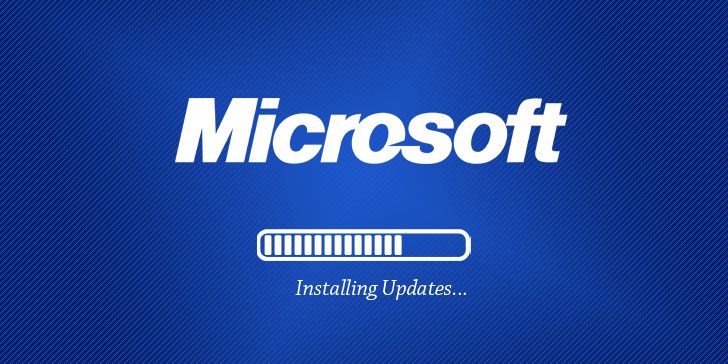Microsoft Releases September 2020 Security Patches For 129 Flaws
As part of this month's Patch Tuesday, Microsoft today released a fresh batch of security updates to fix a total of 129 newly discovered security vulnerabilities affecting various versions of its Windows operating systems and related software.
Of the 129 bugs spanning its various products — Microsoft Windows, Edge browser, Internet Explorer, ChakraCore, SQL Server, Exchange Server, Office, ASP.NET, OneDrive, Azure DevOps, Visual Studio, and Microsoft Dynamics — that received new patches, 23 are listed as critical, 105 are important, and one is moderate in severity.
Unlike the past few months, none of the security vulnerabilities the tech giant patched in September are listed as being publicly known or under active attack at the time of release or at least not in knowledge of Microsoft.
A memory corruption vulnerability (CVE-2020-16875) in Microsoft Exchange software is worth highlighting all the critical flaws. The exploitation of this flaw could allow an attacker to run arbitrary code at the SYSTEM level by sending a specially crafted email to a vulnerable Exchange Server.
"A remote code execution vulnerability exists in Microsoft Exchange software when the software fails to properly handle objects in memory," Microsoft explains. "An attacker could then install programs; view, change, or delete data; or create new accounts."
Microsoft also patched two critical remote code execution flaws in Windows Codecs Library; both exist in the way that Microsoft Windows Codecs Library handles objects in memory, but while one (CVE-2020-1129) could be exploited to obtain information to compromise the user's system further, the other (CVE-2020-1319) could be used to take control of the affected system.
Besides these, two remote code execution flaws affect the on-premises implementation of Microsoft Dynamics 365, but both require the attacker to be authenticated.
Microsoft also patched six critical remote code execution vulnerabilities in SharePoint and one in SharePoint Server. While exploiting the vulnerability in SharePoint Server requires authentication, other flaws in SharePoint do not.
Other critical flaws the tech giant patched this month reside in Windows, Windows Media Audio Decoder, Windows Text Service Module, Windows Camera Codec Pack, Visual Studio, Scripting Engine, Microsoft COM for Windows, Microsoft Browser, and Graphics Device Interface.
Vulnerabilities marked as important reside in Windows, Active Directory, Active Directory Federation Services (ADFS), Internet Explorer Browser Helper, Jet Database Engine, ASP.NET Core, Dynamics 365, Excel, Graphics Component, Office, Office SharePoint, SharePoint Server, SharePoint, Word, OneDrive for Windows, Scripting Engine, Visual Studio, Win32k, Windows Defender Application Control, Windows DNS, and more.
Most of these vulnerabilities allow information disclosure, the elevation of privilege, and cross-Site Scripting. Some also lead to remote code execution attacks. In contrast, others allow security feature bypass, spoofing, tampering, and denial of service attacks.
Windows users and system administrators are highly advised to apply the latest security patches as soon as possible to keep cybercriminals and hackers away from taking control of their computers.
For installing security updates, head on to Settings → Update & security → Windows Update → Check for updates or install the updates manually.










0 comments:
Post a Comment